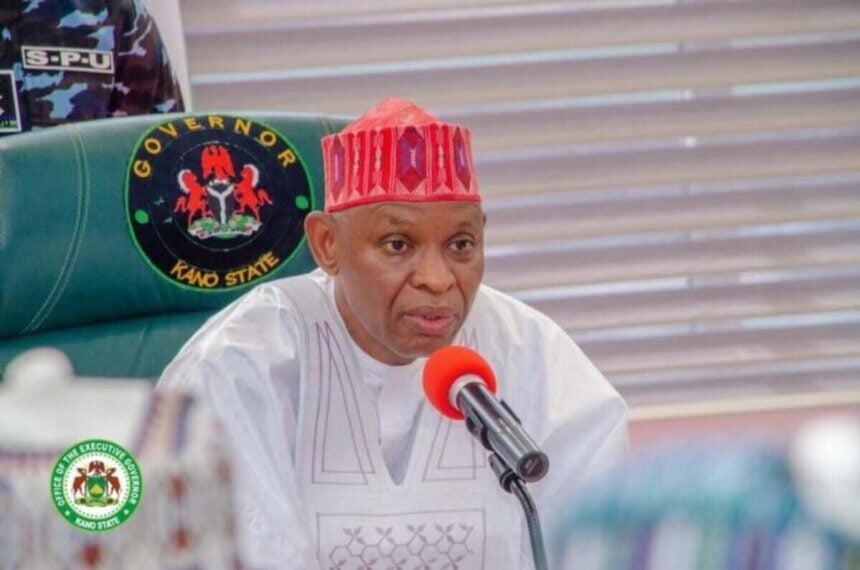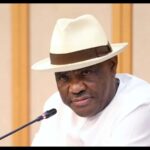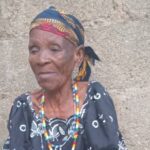A Senior Advocate of Nigeria (SAN), Barrister Sunusi Musa, has criticised the Kano State Government’s decision to ban live political programmes on broadcast media, stating that only the National Broadcasting Commission (NBC) has the authority to regulate broadcast content, not the state.
He described the state’s decision to ban live broadcasts as “absurd, laughable, and unconstitutional.”
It will be recalled that the Kano State Government, as part of efforts to promote responsible journalism, mutual respect, and the protection of Kano’s cultural and religious heritage, announced a ban on live political programmes.
This decision was part of the resolutions reached during a quarterly meeting between the Kano State Commissioner for Information and Internal Affairs, Comrade Ibrahim Abdullahi Waiya, and media executives.
However, the directive, issued by Sani Yola, Director of Special Duties at the Ministry of Information and Internal Affairs, instructs media organisations to halt all live political discussions.
It also warns presenters against asking “provocative questions” and requires guests to sign undertakings pledging not to make comments deemed abusive, defamatory, or offensive to cultural values.
Reacting via Facebook, Barrister Musa questioned the legality and reasoning behind the directive, insisting that the NBC, and not state governments, is responsible for broadcast regulation.
According to him, “The most absurd and laughable news today is the purported ban on live political programmes in all radio stations by the Kano State Government.”
Musa also recalled a 2012 meeting with the current Commissioner for Information during a political visit, expressing surprise that such a decision could emerge from a government led by lawyers.
He emphasised, “As a lawyer, I am sure the Hon. Commissioner has basic knowledge of our Constitution, which he swore to uphold.”
He further stated, “Perhaps he did not consider Section 20 of the Constitution and Item 60 of the Exclusive Legislative List in the Second Schedule, Part I, before advising the governor to impose this ban.”
Musa reiterated that the NBC is the federal agency authorised to regulate broadcast content nationwide.
He added that if a state government has concerns about political programmes, it should raise them through official channels.
“If the government has any problem with such live programmes, it should approach the National Broadcasting Commission (NBC) with a proposal. If the NBC finds merit in the request, it can act accordingly,” he asserted.
Meanwhile, the meeting convened by the Ministry of Information aimed to strengthen understanding and cooperation between media organisations and the government to ensure effective information dissemination while upholding the dignity and image of the state.
Speaking at the session, Comrade Waiya expressed appreciation for the unwavering support of media leaders, which he said has contributed immensely to the ministry’s efforts to curb unethical content on public platforms.
He commended the noticeable reduction in abusive language in some broadcast programmes, attributing the achievement to the productive engagements held in previous meetings.
Highlighting the government’s commitment to preserving the state’s moral standards, the Commissioner disclosed that sensitisation programmes had been organised for political programme presenters, media commentators, and the Council of Friday Imams.
Comrade Waiya called for refined language in media discussions, stating, “These efforts are designed to encourage responsible communication that conveys messages to the public without defamation or any act that could undermine the state’s reputation.”
He further clarified that the government’s stance is not intended to suppress political opposition but rather to safeguard the sanctity of Kano’s cultural and religious values.
Among the key resolutions reached during the meeting was a requirement that anyone appearing on media platforms for interviews must sign an undertaking to refrain from making abusive, defamatory, or culturally offensive remarks.
Additionally, a ban was placed on live political programmes across media outlets to prevent the spread of inflammatory content.
Presenters were also prohibited from asking provocative questions or making suggestive gestures that could lead to statements capable of defaming individuals or damaging the image of Kano State.
Media executives pledged their continued cooperation and offered valuable suggestions on improving broadcast standards and refining language, all aimed at promoting peace and mutual respect in society.
ALSO READ FROM NIGERIAN TRIBUNE
WATCH TOP VIDEOS FROM NIGERIAN TRIBUNE TV
- Relationship Hangout: Public vs Private Proposals – Which Truly Wins in Love?
- “No” Is a Complete Sentence: Why You Should Stop Feeling Guilty
- Relationship Hangout: Friendship Talk 2025 – How to Be a Good Friend & Big Questions on Friendship
- Police Overpower Armed Robbers in Ibadan After Fierce Struggle






